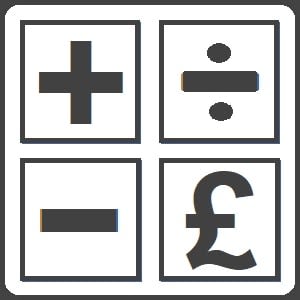IFRS 15 Explained — How It Affects Revenue and Tax for IT, Construction and Consultancy Businesses

What is IFRS 15 ?
IFRS 15 is an international accounting standard concerning Revenue from Contracts with Customers. It might sound like an accounting or audit term — and it is. Accountants and auditors use it when preparing your company’s financial statements. It is a technical term, and it is relevant to when your income should be booked — that is, when you report profit and pay tax. So, it is important for you to understand, even though it is technical.
If you run a software, construction or consultancy business, this rule directly affects when your project income is recognised and therefore when you pay tax.
Knowing the principle helps you have smarter conversations with your accountant and auditor, and plan your business and cash flow better.
It Concerns you and your business if you are: Business owners, company directors, managers, and taxpayers in: • IT/software and digital services • Construction and engineering • Consulting, professional or project-based businesses. Let our experts in Elaga Accountancy explains to you in plain language, no technical jargon, easy to understand way what is IFRS and its implication to you and your business.
Implications of IFRS 15 for Your Business
• IFRS 15 concerns when to record revenue in your accounts.
• It replaces old rules that focused on “when you invoiced or delivered something”.
• The standard introduces a simple principle:
“Revenue is recognised when control of goods or services passes to your customer.”
• In other words, you book income when you have delivered what the customer is paying for, not necessarily when you send an invoice or receive cash.
Why IFRS 15 Matters to Your Business
Because this can change the timing of your income, which means:
• It affects your reported profit for the year.
• It can shift when you pay corporation tax (since tax follows accounting profit).
• It may also affect KPIs, contract valuations, and management decisions.
Key Industry Examples of IFRS 15
IT / Software Businesses
If you sell software licences, implementation, and support as one package, IFRS 15 says you must split the contract into separate performance obligations.
• The licence might be recognised when the software is delivered.
• Support or hosting is recognised over time, as it is provided.
-> Effect: Not all income hits the books upfront — some spreads over the contract term.
Construction & Engineering Firms
Long-term projects fall squarely under IFRS 15.
• Revenue can be recognised progressively as you complete work (“percentage of completion”) if the client controls the asset being built.
• Otherwise, it is recognised only when the project is handed over.
-> Effect: Timing of project revenue — and hence tax — depends on how the contract is structured.
Consultancy / Professional Services
Consultants often deliver work in stages — research, design, implementation, training.
• Under IFRS 15, you record revenue as each stage (performance obligation) is completed.
-> Effect: You can match income more closely to actual progress, rather than simply invoice dates.
The 5-Step Model of IFRS 15
- Identify the contract – Is there a clear agreement with your client?
- Identify what you promise – What goods or services do you owe?
- Set the transaction price – How much are you entitled to for those promises?
- Allocate the price – Divide it across each deliverable.
- Recognise revenue – Book income when you have done your part (fully or partly).
(Accountants handle the technicalities, but understanding this flow helps you review your contracts and forecasts.)
Tax and Cash-Flow Implications
• Tax follows accounting: HMRC usually accepts IFRS 15 timing for tax purposes (see HMRC Business Income Manual BIM31115).
• Cash vs. profit: You may invoice early but recognise income later, creating timing differences.
• Deferred income: Some payments sit on your balance sheet until the service is delivered — useful to understand when analysing your profit and loss.
• Planning tip: Ensure your accountant aligns revenue timing correctly to avoid over- or under-stating profits in the wrong period.
Implications of IFRS 15 for You as a Business Owner
• Review your contract terms with customers, especially milestones, delivery, support periods, and cancellation clauses.
• Ask your accountant how your business applies IFRS 15.
• Check your project tracking and invoicing system — does it show when work is truly completed?
• Keep documentation of milestones achieved and customer acceptance for each stage.
• Remember: this is not about choosing when to pay tax — it is about accurate timing of when revenue is earned.
IFRS 15 in a Nutshell
Even though IFRS 15 sounds like an accountant’s rulebook, it affects how your business shows success and when you pay tax.
If you are in IT, construction, or consulting, understanding this principle can help you forecast profits realistically, communicate better with your accountant, and keep cash flow on track.
Seek Professional Help
If you’re unsure how to apply IFRS 15 or when to recognise your project revenue, speak to your accountant before finalising your accounts or tax return. At Elaga Accountancy , our experienced UK tax advisers and accountants help businesses across IT, construction, and consultancy sectors correctly apply revenue recognition rules under IFRS 15.
We’ll make sure your income is recorded accurately, your tax position is correct, and your financial reporting stays compliant — so you can focus on running your business with confidence.
Get in touch today and let’s make your revenue recognition clear, compliant, and stress-free.
#IFRS15 #GAAPUK #RevenueRecognition #ProjectIncome #IncomeTiming #UKBusiness #TaxTips #ConstructionFinance #SoftwareAccounting #ConsultancyBusiness #ProjectIncome #UKTax #CashflowManagement
Contact Us
Send a Message
Get in touch to discuss with us how we can best assist you.
